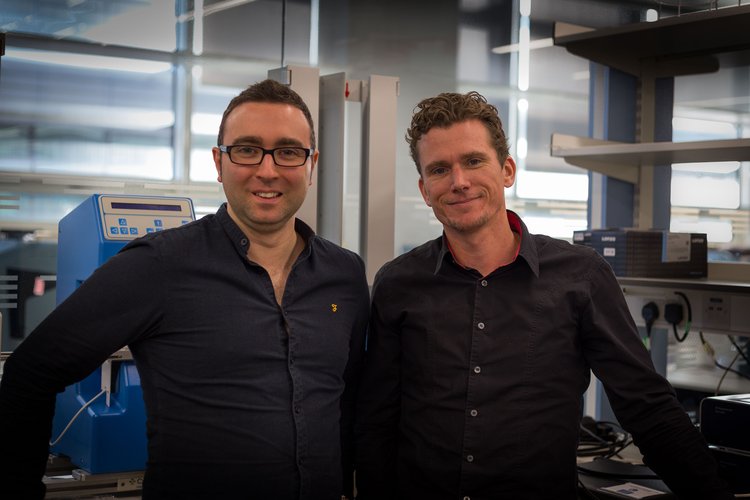New application of existing drug offers personalized therapy for lung cancer
Share
A subset of lung tumours is exquisitely sensitive to a class of recently approved anti-cancer drugs. Researchers at the CeMM and the Ludwig Institute for Cancer Research in Oxford published this finding in the journal Nature Communications. It opens the way for new clinical trials in a type of cancer considered to be “undruggable” and may lead to a therapy for up to 10% of lung cancer patients.
About 10% of lung tumours carry mutations in a gene called ATM. However, there are no drugs available in the clinic to treat ATM mutant lung cancer. With cutting edge high-throughput drug screens, the team of Sebastian Nijman, CeMM Adjunct PI and Group Leader at the Ludwig Institute for Cancer Research in Oxford made a surprising discovery: Cancer cells with ATM mutations are sensitive for drugs that inhibit an enzyme called MEK. The study was published in Nature Communications (DOI: 10.1038/NCOMMS13701)
In ATM deficient lung cancer cells, Nijman’s team found that MEK inhibition results in cells being unable to keep proliferating and leads to apoptosis. An unexpected finding, as MEK inhibitors have so far been approved for the treatment of a type of skin cancer but not for lung cancer.
The study constitutes a substantial contribution for the development of a future precision medicine: ATM mutations could be used as a potential biomarker to stratify lung cancer patients to receive a MEK inhibitor. Given that lung adenocarcinomas are among the most prevalent types of tumours for both men and women worldwide, a significant number of patients could benefit from a MEK inhibitor based treatment.
Publication:
Michal Smida*, Ferran Fece de la Cruz*, Claudia Kerzendorfer, Iris Z Uras, Barbara Mair, Abdel Mazouzi, Tereza Suchankova, Tomasz Konopka, Amanda M Katz, Keren Paz, Katalin Nagy-Bojarszky, Markus K Muellner, Zsuzanna Bago-Horvath, Eric B Haura, Joanna I Loizou and Sebastian MB Nijman (* equal contribution). MEK inhibitors block growth of lung tumors with mutations in Ataxia Telangiectasia Mutated. Nature Communications, 2016. DOI:10.1038/NCOMMS13701.
Funding:
This study was supported by the European Research Council (ERC), the Moffitt Lung Cancer Center of Excellence, research grants from the Austrian Science Fund (FWF), the Vienna Science and Technology Fund (WWTF) and the European Union FP7 Career Integration Grant, fellowships from the Austrian Academy of Sciences as well as by the Ministry of Education, Youth and Sports of the Czech Republic.

